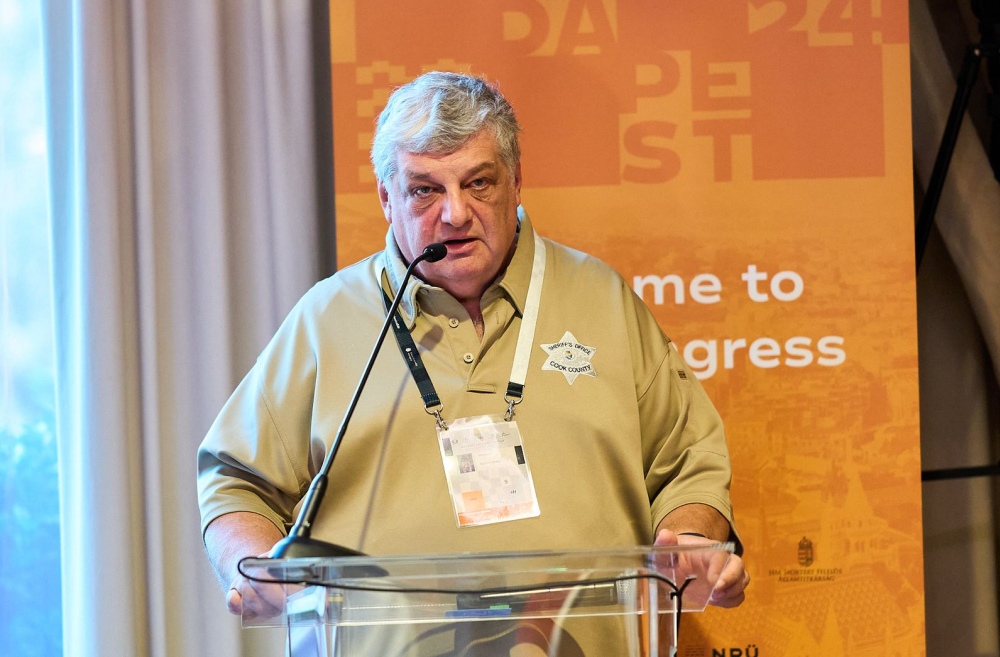On September 21, 2024, Budapest hosted the #SocialChess conference, a gathering of FIDE officials, Social Commission members, and project leaders dedicated to leveraging chess for societal good. The event underscored FIDE’s commitment to using chess as a transformative tool across various social initiatives worldwide, with the announcement of 2025 being declared as the “Social Chess Year.”
The conference was opened by Dana Reizniece-Ozola, Deputy Chair of the FIDE Management Board, who stressed the importance of collective action in bringing positive change through chess.
“This meeting allows us to share ideas, updates, and plans for the future,” she said. Reizniece-Ozola invoked a poignant quote from Imants Ziedonis, a renowned Latvian poet: “You can gain by taking, but you can also gain by giving. And those things that you give away, nobody can take from you.”

She suggested this could serve as a guiding motto for the Social Commission, affirming that “this is just the beginning. We are helping people change lives with a wonderful tool we have in our hands—chess.”
2025: The Year of Social Chess
André Vögtlin, Chair of the FIDE Social Commission, introduced the central theme of 2025 as the “Year of Social Chess.” In line with FIDE’s 10 goals for the next 100 years, he emphasized that social impact stands as a crucial objective.
Vögtlin invited federations, organizations, and individuals involved in social outreach through chess to collaborate with FIDE in advancing this mission.
Project highlights
Several major initiatives spearheaded by the Social Commission were showcased during the conference, revealing the profound influence chess can have in different social contexts.

– Chess for Protection: Sonja Johnson, a FIDE Social Commission member, presented updates on this initiative, particularly its work in Kenya’s Kakuma refugee camp. Partnering with UNHCR, FIDE has been teaching chess to children, offering them a valuable educational and social tool. Despite the camp’s challenging conditions, Johnson reported that 1,350 primary school students and 350 secondary students are now involved in the program.
She also shared the success of increasing female participation and the inspiring story of students transitioning into facilitators. A documentary is in production to raise awareness and attract new partners for the project’s future growth. The initiative is also set to expand to the Americas, including the US-Mexico border and Panama.

– Chess for Freedom: Mikhail Korenman, FIDE Social Commission Councillor, reported on the success of this project aimed at rehabilitating inmates through chess. Initially launched at Cook County Jail in the U.S., the project has shown significant behavioral improvements among inmates who participated in chess coaching for six months or longer. Korenman shared plans for expansion, including increasing the number of participating countries and correctional institutions, with aspirations to elevate the current intercontinental tournament to a full-fledged world championship for inmates.
– Infinite Chess: Maria Tamkovich, the project’s coordinator, delivered a presentation on using chess to assist children with ASD. Since its inception in 2021, the project has grown to involve 19 countries. A handbook for teaching chess to children with ASD, now available in multiple languages, has been a crucial resource. Tamkovich also provided insights from recent research, highlighting chess’s positive impact on cognitive and behavioral development in children with ASD. Testimonials from project facilitators and therapists accompanied her presentation.

– Chess for elderly and Chess for life: PD Dr. Prabhita Urwyler, who leads this initiative, discussed how chess can play a vital role in improving cognitive health and social engagement among the elderly as well as among those suffering from addiction and addictive behaviour.
Dr. Urwyler explained that the project targets retirement homes, community centers, and care facilities across different countries, with a focus on non-competitive, social chess.
Examples from Turkey, Switzerland, Spain, and Sweden illustrated how cultural considerations are integrated into each program. “Healthy Chess” in Menorca and Stockholm’s intergenerational “Let’s Play Chess for Everyone” program were particular highlights. The project also seeks to explore the therapeutic potential of chess in combating addiction, particularly in the context of substance abuse recovery.
– Chess and Cancer (Project 2C): In one of the most moving sessions of the conference, Susana Gonçalves, co-founder of Chess2All, spoke about Project 2C, which brings chess to cancer patients. Launched in Portugal, this initiative aims to provide emotional support and cognitive stimulation to those undergoing cancer treatment.
Gonçalves shared how chess trainers are specially trained to work with patients, ensuring the approach is both ethical and compassionate. The project plans to launch the Queen’s RISE initiative in March 2024, focused on supporting women with breast cancer through chess as part of their therapy.
A unified mission for 2025 and beyond
The final message of the conference was one of unity and action. As FIDE prepares for 2025, the Year of Social Chess, the call for global participation was clear: chess is not just a game but a powerful tool for social change.
By connecting communities, empowering the vulnerable, and offering second chances, FIDE’s Social Commission is actively shaping a brighter future.
Written by Milan Dinic
Photos: Hungarian Chess Federation

